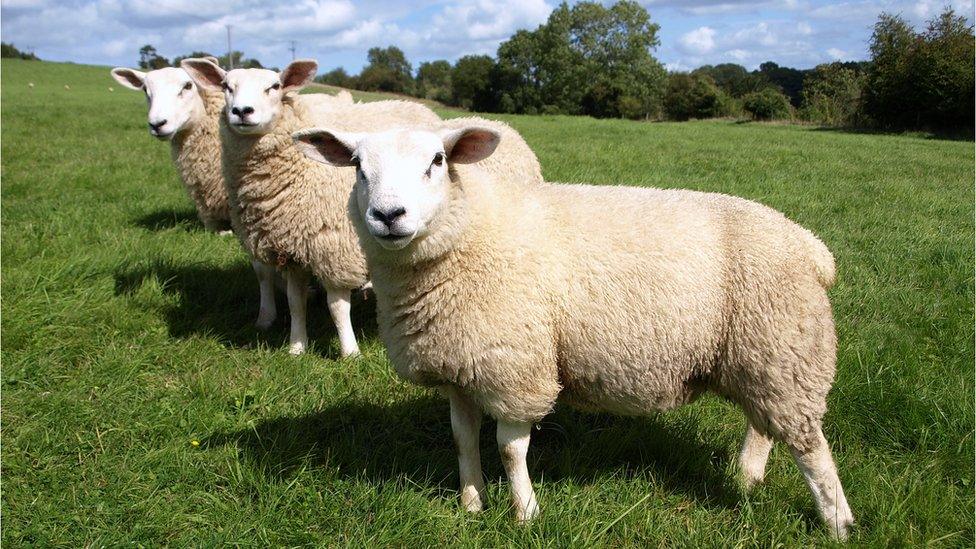Coronavirus: Edwin Poots says some parties holding back lockdown easing
- Published
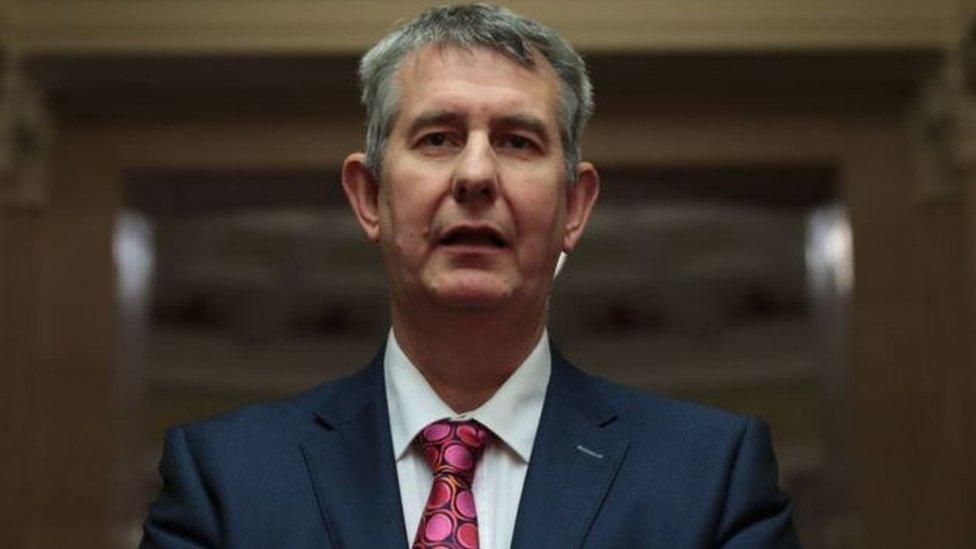
Edwin Poots said the executive must get Northern Ireland back to business as quickly as possible
Agriculture Minister Edwin Poots has chastised some parties in the executive who he said were holding back the lifting of Covid-19 restrictions.
Mr Poots, of the DUP, was speaking during an assembly debate on financial support for farmers.
He suggested other parties were reluctant to ease the lockdown, despite evidence from senior scientists that it could be done.
Health Minister Robin Swann has said he wants to see a "measured" easing.
The executive will meet on Thursday to decide whether to allow more restrictions to be lifted, but Mr Swann, of the Ulster Unionist Party, said he did not want the process to be rushed.
'Let's get on with it'
Speaking in the assembly, his executive colleague, DUP minister Mr Poots, said if assembly members wanted to see agricultural prices improve, the most important thing was to get greater "normality" back into the market, with the reopening of coffee and fast-food shops.
He said: "To those parties who continue to hold back and say 'not yet, not yet, not yet', whenever the chief medical officer said there's a fair degree of latitude at the minute because the R-figure is low and the number of people with Covid-19 is low - let's get on with it.
"Let's get Northern Ireland back to business."
Doing that would allow businesses to begin trading profitably again and mean that the executive would not have to find money to compensate them, he added.
What does the ease in restrictions mean for people in Northern Ireland?
"That would be the biggest success story this assembly could make," said Mr Poots.
An independent report has shown that hotels, bars, and fast-food take more than a third of meat produced here.
Mr Poots said one large fast food chain took 12% of Northern Ireland beef, while another took 500,000 chickens a week, while ice cream parlours and coffee shops used huge quantities of milk.
The minister was responding to a Sinn Féin motion arguing that a £25m government support scheme should be distributed in a way that compensated beef and sheep farmers in hill areas equally to the support offered to those on lowland farms.
The Ulster Farmers' Union (UFU) had suggested the beef sector should get just over half of the package to help it recoup losses from the closure of markets during the Covid-19 crisis.
It said sheep farmers should get £270,000.
EU state aid rules, which still apply during the Brexit transition, say that only businesses that suffered a direct loss as a result of the pandemic can be assisted.
Beef, dairy and horticulture are the three main sectors likely to be helped.
Beef prices started to take a tumble in December as markets in China shut down.
The problem was compounded when the crisis spread across Europe with bars, restaurants, and workplaces shutting in response.
The loss of that so-called food service sector shut off markets which account for around a third of all produce consumed, a lot of it the more expensive cuts of meat like steak.
An independent report commissioned from agricultural economists showed that the closure of markets and increased processing costs led to a loss in value per beef animal of £238.
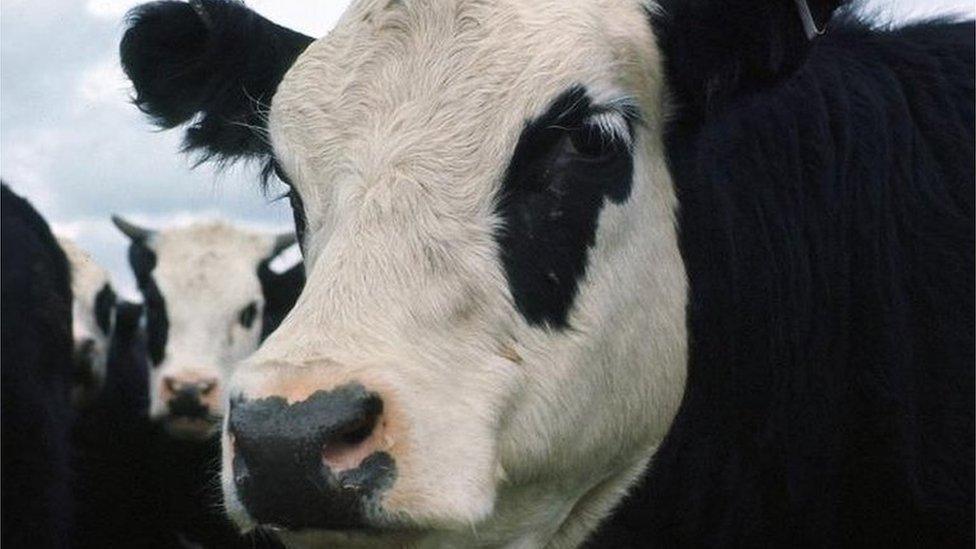
Beef prices started to take a tumble in December as markets in China shut down
It was not just red meat - things like hides, which can add to the overall value of an animal were affected, with big clients in Italy and China unavailable.
The bulk of lambs in Northern Ireland will not come onto the market until a little later in the summer, but some producers would have reared and sold early lambs for the Easter market.
The UFU has suggested that farmers who sold lambs during a four-week period up to mid April, when prices plummeted, are paid an extra £8 per head.
Responding to the assembly debate, Mr Poots said the money had to be spent helping those who had taken a financial hit during the Covid crisis and claimed the Sinn Féin motion was "divisive".
He said he was happy to go back to the executive asking for more cash in the months ahead, if sales of cattle and sheep from hill farms in the coming months showed continued low prices due to the closure of markets.
The motion was carried after a vote.
- Published22 May 2020
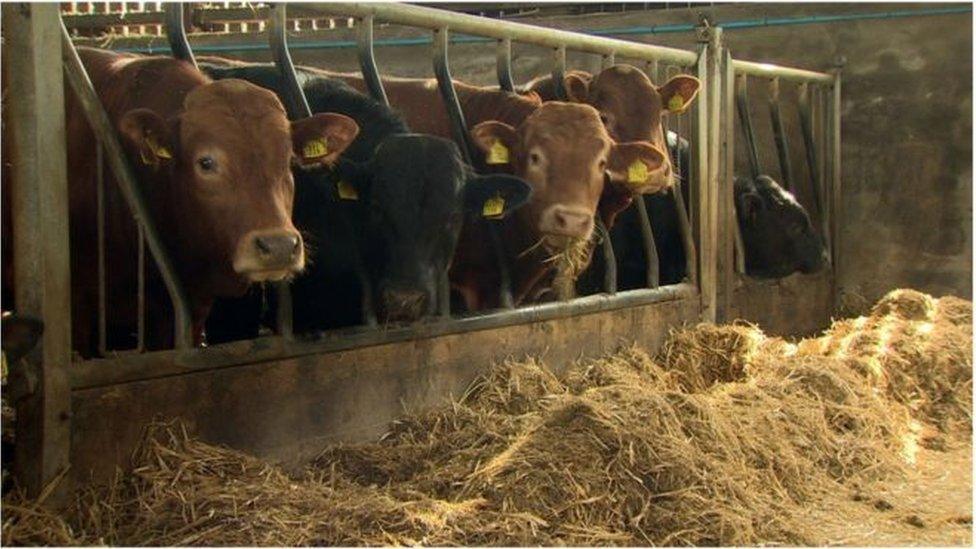
- Published21 April 2020
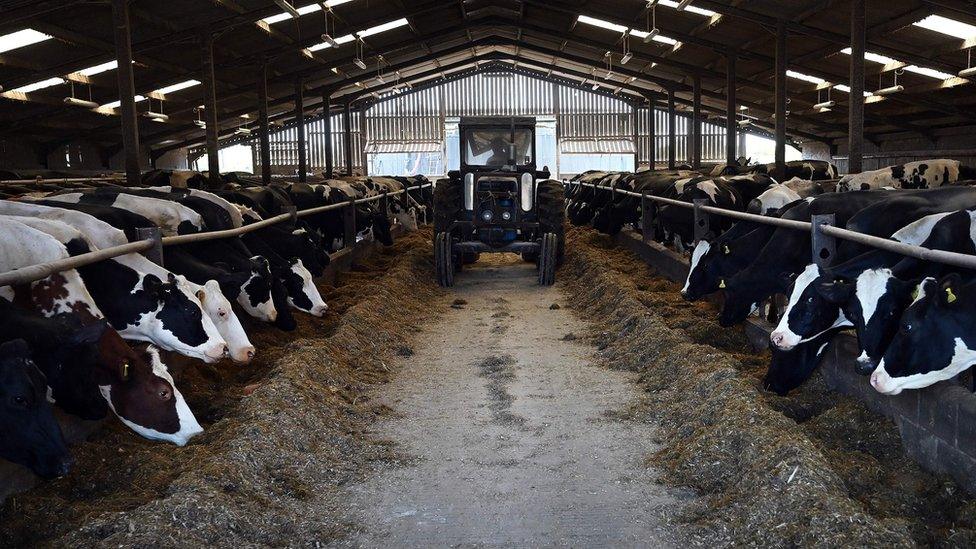
- Published13 August 2018
